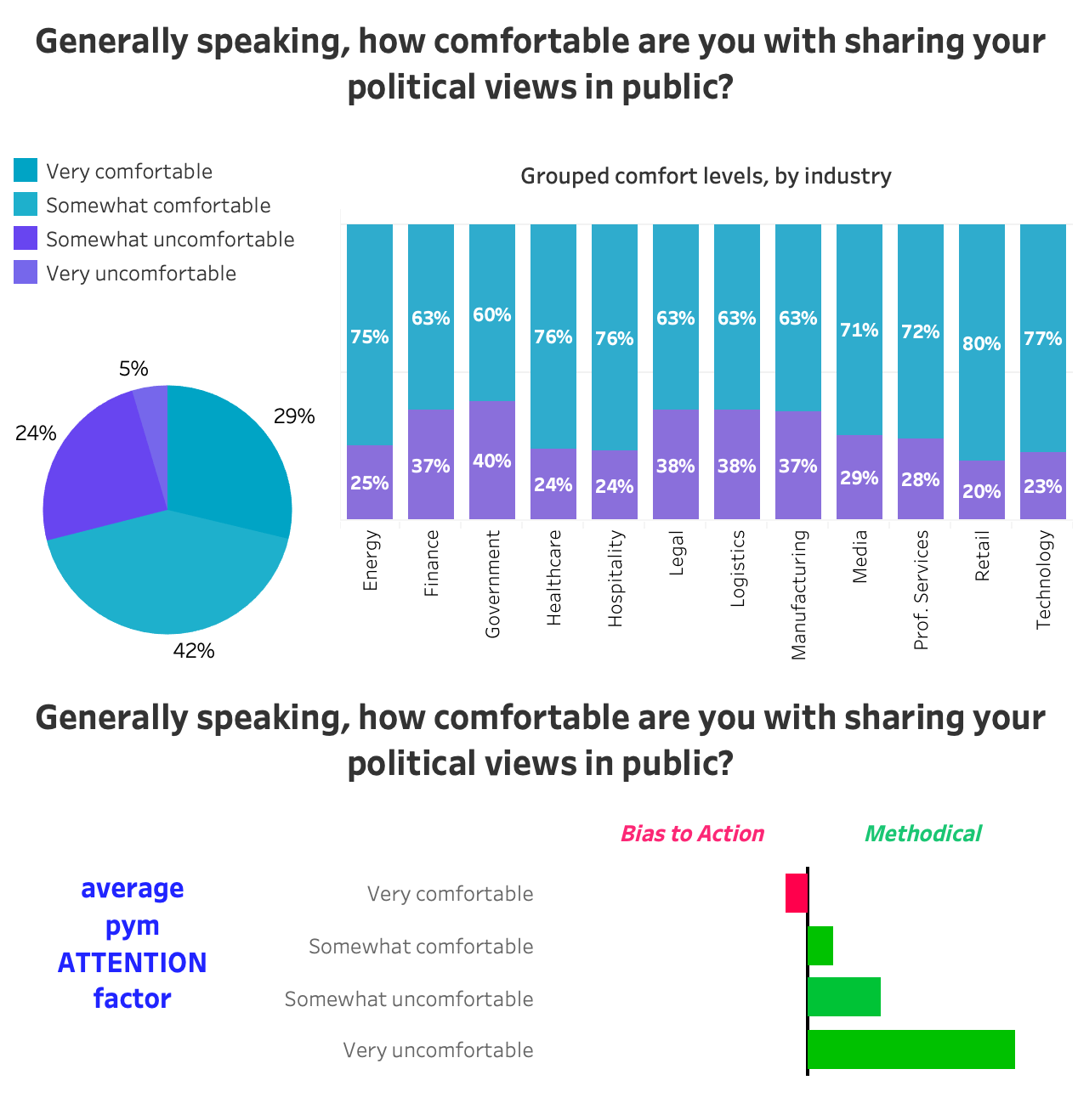We’re excited to announce that pymetrics has been acquired by Harver!
Read MoreFor the latest blogs, please visit Harver.
%402x.jpg)






(This article is part of our PorTRAITS Series, Stories Told Using pymetrics Data)
Amid this public health crisis and time of social unrest, individuals are inevitably forced to confront their own political viewpoints regarding the measures that governments are taking to put a stop to the injustices, hazards, and uncertainties before us. The variety of viewpoints is arguably more visible than ever, as many are taking to social media to express themselves as social distancing practices are disabling us all from directly interacting with family, friends, and colleagues to the degree that we were used to. At pymetrics, we were interested in better understanding how comfortable individuals are in sharing political views publicly. Furthermore, we explored what kind of information they tend to rely on to formulate such opinions, whether it be their own gut instincts, information from experts, or hard data, and how that is correlated with the way they otherwise allot their efforts on a daily basis.
Continue reading below to see the results of our survey:

The above graph demonstrates that those working in the healthcare and hospitality industries are most comfortable publicly sharing their political views, whereas those working in the government sector are least comfortable, followed by Finance, Manufacturing, and Legal industries. On the whole, less than half of the surveyed participants feel very comfortable sharing their political views in public.
This comfort relates to pymetrics factor scores specifically as follows: individuals who are “methodical”, meaning they tend to be systematic in the way they complete tasks and are often thorough and restrained, are significantly less comfortable sharing their political views publicly. On the other hand, those who are more biased to action tend to not be concerned when they make mistakes are more likely to be open with their political perspectives.

The above graph conveys that individuals who are outcome-driven, meaning they may be more likely to allocate effort and energy to tasks in a selective manner, focusing on the activities that will provide the highest reward for the time invested, are most likely to rely on their intuition/gut when it comes to forming views of politics and current events. On the other hand, those who are hard-working, and work equally hard across all tasks regardless of how much they expect to be rewarded for task completion, are more likely to rely on data/statistics and relevant experiences of others, but above all relevant expert opinions.
For the same group of individuals who are identified as “hard-working” for pymetrics’ Effort factor, most consume content from diverse sources, followed by content shared by experts and other prominent voices, then front pages and recommended reads from preferred outlets, and finally content shared by friends and colleagues. Those who are “outcome-driven” follow the same pattern of news consumption, even though it leads to them ultimately relying on their own gut and intuition to form political opinions. This distinction is revealing of the ways in which styles of exerting effort are related to differences in sharing political opinions, even when the types of sources relied on are by-and-large the same.
In thinking about the results captured by this poll, it is worth noting that pymetrics does not believe that it is inherently “better” for people to score to one side of our factors over the other. Being on either side of each factor spectrum may just better position someone to be a fit for one job at a particular organization over another, or in the case of sharing political opinions, relate to how comfortable they are doing so publicly. In all, the current economic climate brought on by COVID has affected everyone, everywhere. We all naturally have opinions about the way the crisis is being managed, and even more generally about the way the world works. Whether opinions are shared publicly or between close friends, research points to sharing opinions, especially with those who have different viewpoints, as being crucial to staying informed and developing empathy for others.
For more information on pymetrics, please reach out to us here.